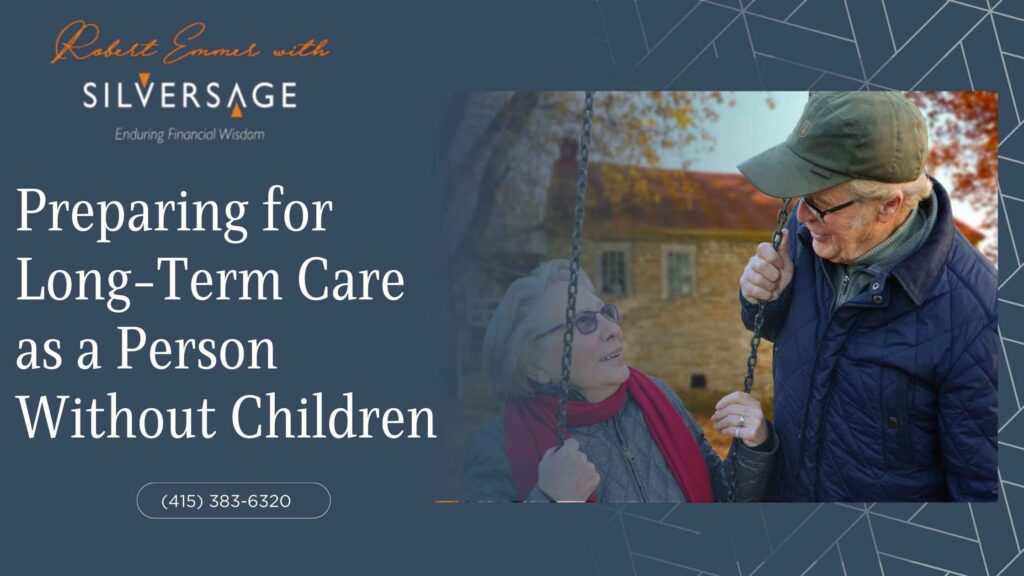As we age, it’s essential to prepare for our future, especially when it comes to long-term care. However, for those without children, this process may feel daunting or isolating. Nonetheless, it’s essential to plan for your senior years, particularly when you don’t have a support system in your immediate family.
Here are some tips that can help you prepare for long-term care as a person without children.
Create an Estate Plan
One of the most crucial steps you can take to prepare for long-term care is to create an estate plan. This plan will help ensure that your wishes are carried out if you become incapacitated and cannot make decisions for yourself. It also specifies who will make decisions on your behalf. Consider talking to an estate planning attorney or financial advisor to review your options and put your wishes in writing.
Save for Long-Term Care
Long-term care insurance is essential if you want to prepare for your long-term care costs. You can save for long-term care costs by purchasing insurance policies or by opening a long-term care savings account. If you plan to purchase a long-term care insurance policy, do your research and shop around to ensure you get the best available rate.
Consider Your Living Options
Where you live will play a role in your long-term care plans. Living at home may be ideal, but there are also other options like independent living communities or assisted living facilities. Research different communities near you to find one that can offer you the care you need.
Build a Network
Even if you don’t have children, you can still build relationships within your community. Create bonds with your neighbors, join a social group, or volunteer at local organizations. Building relationships can help ensure you have a support network in place if you need assistance later in life.
Research the Resources Available
There are many resources available to people without children who are planning for long-term care. Research different programs, organizations, and support groups in your area. Some may be able to provide financial assistance, while others may offer emotional support.
Communicate Your Wishes
Even if you don’t have children, it’s essential to communicate your wishes to your loved ones and healthcare providers. Let them know what you want to happen if you become incapacitated, and who you want to make decisions on your behalf. This can help ensure that your wishes are carried out if you’re unable to make decisions for yourself.
Talk to a Financial Advisor
Planning for long-term care may feel overwhelming, so consider talking to a financial advisor. They can help you assess your financial situation, create and execute a financial plan, and help you make informed decisions about your future.
Work with us
Don’t wait until it’s too late; start planning today!
At Robert Emmer with Silversage, we strive to provide the best possible advice when it comes to estate planning. We also understand the importance of setting up a strong foundation for long-term prosperity, which is why we offer comprehensive estate planning, investment strategies, retirement planning, tax optimization, gifting strategies, and more. Our team of experienced advisors can help guide you through the process.
Our goal is to provide you with financial confidence to help relieve your stress and worry.
Let us show you how our wealth management services can be of assistance! Contact us today for more information.
This information has been obtained from sources considered to be reliable, but we do not guarantee that the foregoing material is accurate or complete. Any opinions are those of the author, and not necessarily those of Raymond James. Every investor’s situation is unique and you should consider your investment goals, risk tolerance and time horizon before making any investment. Investing involves risk and you may incur a profit or loss regardless of strategy selected including diversification and asset allocation. Be sure to contact a qualified professional regarding your particular situation before making any investment or withdrawal decision. This material is for general information only and is not intended to provide specific advice or recommendations for any individual. Financial and investment planning inherently involve potential tax and legal implications, with which we are generally familiar. We do not, however, practice as lawyers or CPAs and cannot give specific legal or tax advice. You should always consult with your tax advisor, or your attorney, when making complicated legal or tax decisions, however, we’re glad to work with your tax or legal professional to help you meet your financial goals. Raymond James financial advisors do not render advice on tax or legal matters.
Long Term Care Insurance or Asset Based Long Term Care Insurance Products may not be suitable for all investors. Surrender charges may apply for early withdrawals and, if made prior to age 59 ½, may be subject to a 10% federal tax penalty in addition to any gains being taxed as ordinary income. These policies have exclusions and/or limitations. The cost and availability of Long Term Care insurance depend on factors such as age, health, and the type and amount of insurance purchased. As with most financial decisions, there are expenses associated with the purchase of Long Term Care insurance. Guarantees are based on the claims paying ability of the insurance company. Please consult with a licensed financial professional when considering your insurance options.

